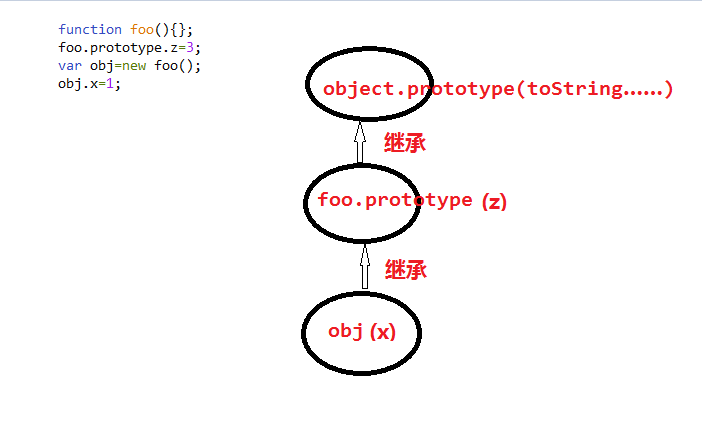- 全局函数
isFinity() - 检测是否是无穷值(+infinity,-infinity,NaN返回false); isNaN() - 检测是否为数值 encodeURI(uri) - 将字符串编码为uri(UniformResourceIdentifier 通用资源标识符) decodeURI(uri) - 将uri解码 encodeURIComponent() - 将字符串编码成uri组件 decodeURIComponent() - 解码 escape() - 对字符串进行编码 unescape() - 解码
eval() - 把js字符串当做脚本执行 - a=new Date();alert(Number(a)); 返回一个时间戳
- 匿名函数
var f1=function(x,y){return x*y;}; 将函数作为参数传递给一个变量 123; 这也是匿名函数 'yolo'; 这也是匿名函数 - 回调函数
function f(x,y){ return x()+y(); } function x(){ return 3; } function y(){ return 4; } alert(x,y); - 匿名回调函数
alert(f(function(){return 4;},function(){return 5;}));call()方法调用回调函数 函数名,参数
function my(a,b){ return a*b; } alert(my.call(my,6,7));apply()方法调用回调函数 函数名,参数数组
var params=[3,4]; my.apply(my,params); - 自调函数 无参数时前面一个括号,后面一个括号,加分号;有参数时在后面的括号内加参数
(function f1(){ alert('happy day'); })(); (function f1(a,b){ return a+b; })(a,b); - 对象就是复合值
//1.通过对象字面量的形式创建对象,键名含关键字,特殊字符什么的要用引号括起来 var obj={x:1,y:2,z:3}; //2.通过new创建对象; var obj=new Object(); var arr=new Array(); var date=new Date(); var reg=new RegExp();//创建正则对象 //3.通过构造函数的形式创建对象 function Test(){} var obj=new Test();//使用new关键字创建对象,如果直接是函数名,表示调用函数 function Test1(a,b){} var obj=new Test(1,2);
//4.通过Object.create()创建对象 var obj=Object.create({x:1,y:2}); var obj=Object.create(null);//创建一个没有原型的对象 var obj=Object.create(Object.prototype);//创建一个空对象,prototype是原型的意思
//使用instanceof操作符可以检测一个对象是否由某个指定的构造器函数创建的
function Test1(a,b){}
var obj=new Test1(1,2);
alert(obj instanceof Test1);//检测实例obj在不在Test1构造函数中 - 对象的属性
//定义对象 var person={ name:'yolo', age:22, gender:'female', addr:'广州' }; // 调用属性 // alert(person.name); // alert(person['name']); // console.log('用户名为:'+person.name); //添加属性 var obj={};//空对象 obj.name='yolo'; obj['name']='yolo'; //delete删除属性 delete obj.name; //通过for/in遍历属性 var obj={ name:'yolo', age:23, msg:'you here' } for(var p in obj){ document.write(p+' ');//输出的是全部键名 }
//如果对象中有方法,调用时要加括号
var obj={
id:1,
name:'yolo',
age:23,
msg:function(){return 'you here';}
}
document.write(obj.msg()+'<br>');
function foo(){};
foo.prototype.z=3;
var obj=new foo();
obj.x=1;
obj.y=2;
//通过in检测对象上是否有某个属性
console.log('y' in obj);
console.log('x' in obj);
console.log('toString' in obj);
//hasOwnProperty检测自身是否有某个属性,不包含继承的
console.log(obj.hasOwnProperty('x'));
console.log(obj.hasOwnProperty('z'))关于继承原型的理解图:


- 属性的特性
function foo(){}; foo.prototype.z=3; var obj=new foo(); obj.x=1; console.log('x' in obj); console.log(obj.hasOwnProperty('z')); console.log(obj.propertyIsEnumerable('x'));//属性时自己的并且是可枚举的菜返回true console.log(obj.propertyIsEnumerable('z'));
//返回所有自有属性的名称
console.log() console.log(Object.getOwnPropertyNames(obj)); console.log(Object.keys(obj)); </script> -
Object.defineProperty()方法设置属性
如果属性为不可配置,可以把writeable的true改为false,但是不可以把false改为truevar obj={}; Object.defineProperty(obj,'name',{ value:'yolo', writable:true,//设置是否可写 enumerable:true,//是否可枚举 configurable:true //是否可配置(与是否可delete有关) }); delete obj.name; console.log(obj.name); - Object.defineProperties()方法设置多个属性
var obj={}; Object.defineProperties(obj,{ 'x':{ value:1, writable:true, enumerable:true, configurable:true }, 'y':{ value:2, writable:true } }); console.log(Object.getOwnPropertyDescriptor(obj,'x'));//获取属性特性值 console.log(Object.getOwnPropertyDescriptor(obj,'y')); - 存储器属性:get获取属性的值和set设置属性的值
var count={ x:1, y:2, z:3, get zhouchang(){return this.x+this.y+this.z}, set fanbei(value){ this.x*=value; this.y*=value; this.z*=value; } } console.log(count.zhouchang);//输出6 count.fanbei=2; console.log(count.zhouchang);//输出12 var obj={}; Object.defineProperty(obj,'x',{ get:function(){return 1;} }); console.log(obj.x);//输出1 -
对象的属性
-
对象的原型(prototype)指向另一个对象,本对象的属性继承自它的原型对象
- 通过对象字面量创建的对象使用Object.prototype作为它们的原型,即:var obj={}
- 通过new创建的对象使用构造函数的prototype属性作为原型
- 通过Object.create()创建的对象使用第一个参数(也可以是null)作为原型
- 通过isPrototypeOf()来检测一个对象是否是另一个对象的原型或者处于原型链中var obj1={x:1}; var obj2=Object.create(obj1); var res=obj1.isPrototypeOf(obj2);//检测obj1是否是obj2的原型,结果为true res=Object.prototype.isPrototypeOf(obj2);//检测Object.prototype是否是 obj2的原型,结果为true console.log(res); - 对象的类(class)是一个标识对象类型的字符串
var obj={}; var res=obj.toString();//输出 "[object Object]" var arr=[]; res=arr.toString();//教程说是输出 "[object Object]",我的测试输出"",因为很多内置的数组对象会重写了toString()方法 res=Object.prototype.toString.call(arr);//使用回调函数,输出"[object Array]" console.log(res);
// 也自定义函数得到数据类型
function classof(obj){
if(obj===null){
return NULL;
}
if(obj===undefined){
return 'Undefined';
}
return Object.prototype.toString.call(obj).slice(8,-1);//slice(start,end) 方法可从已有的数组中返回选定的元素。-1指最后一个元素,-2指倒数第二个元素……
//假设返回数组对象"[object Array]",我们要得到的是Array,所以要从第八个开始
}
var a;
a=function(){};//输出 "Function"
a=window; //输出"global"
res=classof(a);
console.log(res);
-
- 内建对象之Date对象(1970年1月1日)
//构建对象方法 new Date();默认为当前时间 new Date(timestamp); new Date(dateString);表示日期的字符串值,要求该字符串能被Date.parse()方法识别 new Date(年,月,日,时,分,秒,毫秒);可以只写部分值 //常见日期函数 var d=new Date(); var res=d.getDate();//返回一个指定的日期对象为一个月中的第几天,返回一个1 到 31的整数值 res=d.getDay();//返回星期中的第几天(0-6) res=d.getFullYear(); res=d.getMonth();//返回月份(0-11) res=d.getTime();//返回时间戳 console.log(res); -
内建对象之RegExp()对象
//方法1 var patt=new RegExp('yolo'); var res=patt.test('my name is yolo'); //方法2 var patt=new RegExp(); patt=/yolo/i; //方法3 var res=patt.test('my name is Yolo');//示例 res=/./.test(' ');//.是元字符,返回false res=/y(?=o)/.test('my name is yolo');//检测y后面紧邻的是o返回真 res=/y(!=o)/.test('my name is yolo');//检测y后面紧邻的不是o则返回真 res=/m/i.exec('my name is Yolo');//输出["m", index: 0, input: "my name is Yolo"] patt=/i/ig;//加了全局搜索g,从上次查找结束为止开始查找 var str='this is the best time'; var arr; while((arr=patt.exec(str))!==null){ var msg="找到了"+arr[0]+'!'+'下一个匹配从'+patt.lastIndex+'开始'; console.log(msg); } 输出: "找到了i!下一个匹配从3开始" "找到了i!下一个匹配从6开始" "找到了i!下一个匹配从19开始"match匹配,search查找,repalce替换
var str='this is a test'; var res=str.match(/is/i);//输出:["is", index: 2, input: "this is a test"] res=str.search(/is/i);//输出:2(即返回第一个匹配到的索引位置) res=str.replace(/is/i,'%');//输出:th% is a test console.log(res);